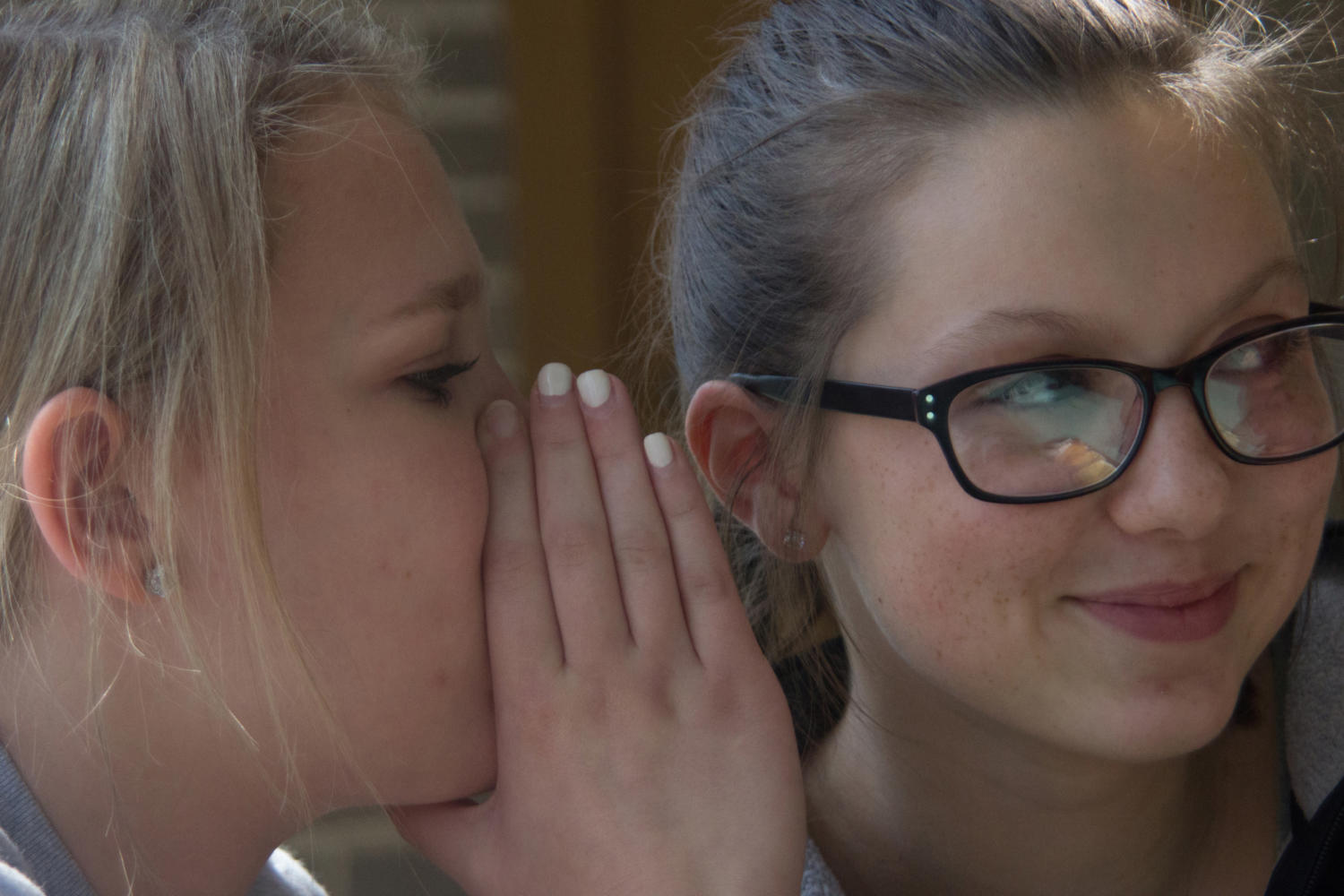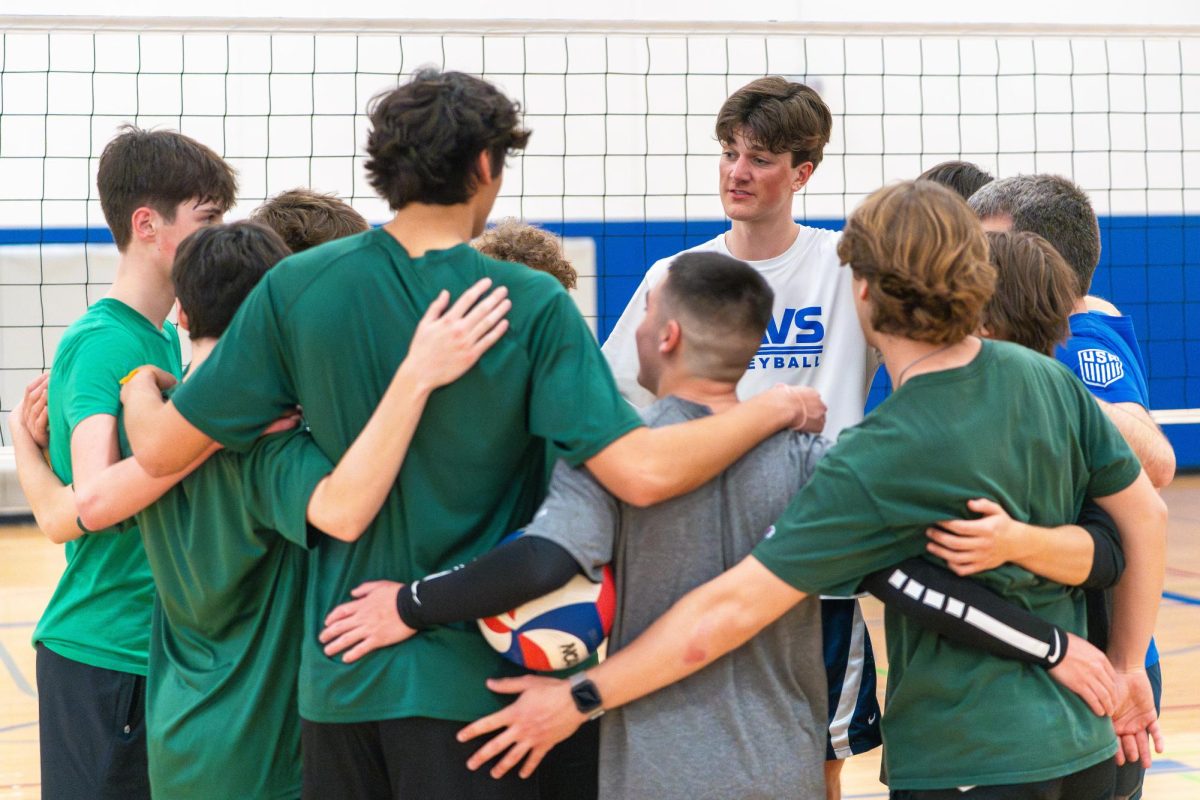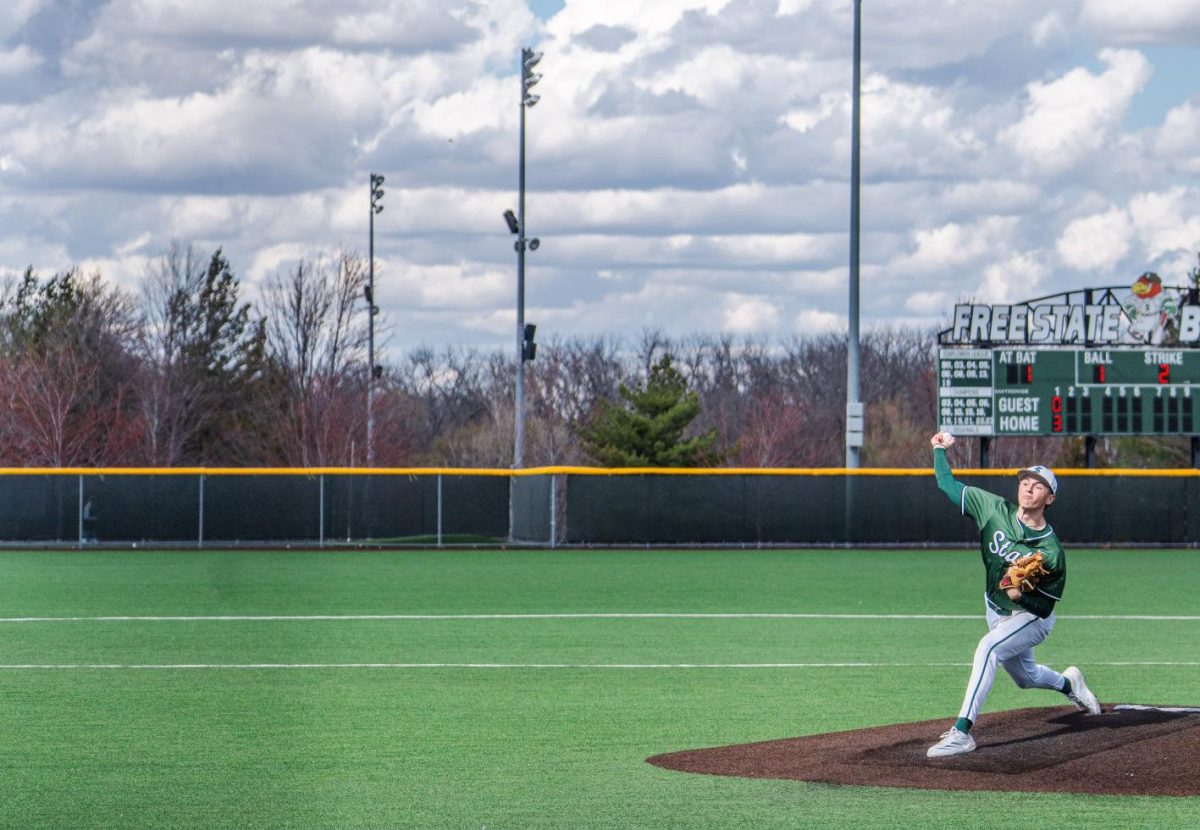Current State of Sexual Assault and Consent Issues
Sophomores Jordan Collins and Fiona Swaggerty sharing a secret. If students have something they need to share they can speak to an adult such as the school nurse.
October 18, 2017
Every 98 seconds somebody is sexually assaulted, according to the Rape, Abuse and Incest National Network. In the time it takes you to read this story, one person in the U.S. will have been sexually assaulted.
Considering this, sexual assault should be important to talk about, but senior Bo Miller thinks consent and assault are not discussed much.
“We definitely talk about our etiquette,” Miller said. “Like how we’re supposed to compose ourselves in school, but I don’t think we talk about sexual assault much.”
Nurse Sonja Gaumer says that if anyone talked to her about sexual assault, she would refer them to the Lawrence Douglas County Health Department or their family physician. Other places to go would be rape counseling services like the National Sexual Assault Hotline, Kansas Coalition Against Sexual and Domestic Violence and the Sexual Trauma and Abuse Care Center, which you can contact at (785) 843-8985.
Junior Lauryn Jones’ experience further adds to this silence associated with sexual assault. In her ninth grade health class, the curriculum went over the basics of sex but did not go over sexual assault issues, specifically how to prevent it and what steps should be taken by the victim when it does happen, according to Jones.
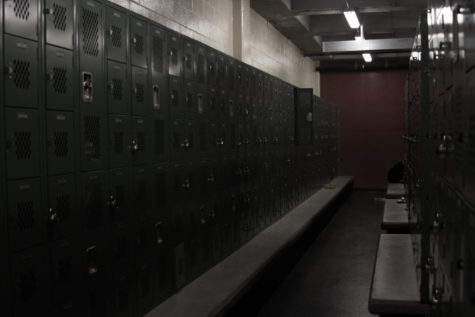
The Free State gym locker rooms, vacated while students are in class. Where the phrase “locker room talk” got its name.
Prevention and information about sexual assault is supposed to be taught in the ninth grade health class, Gaumer said.
According to Denise Johnson, curriculum director of health and physical education, the National Standards For Human Sexuality should address the following:
- Analyze the laws related to bullying, sexual harassment, sexual abuse, sexual assault, incest, rape and violence.
- Describe potential impacts of power differences (e.g., age, status or position) within sexual relationships.
- Demonstrate ways to access accurate information and resources for survivors of sexual abuse, incest, rape, sexual harassment, sexual assault and violence.
- Identify ways in which they could respond when someone else is being bullied or harassed.
Sexual assault is any type of sexual contact or behavior that occurs without the explicit consent of the recipient. Examples of verbal assault would include bullying, remarks and comments which are of a sexual orientation towards a male or female, according to the Department of Justice.
Senior Gabe Clark believes “locker room talk” perpetuates a climate where sexual assault arises, but is not an issue at Free State.
“It does exist, but I wouldn’t say it’s as extreme as some other places,” Clark said. “Even if someone said something outrageous, I’d say someone would speak up about it.”
Counselor Ms. Mitchell says punishment is as important as prevention.
“There is a zero tolerance policy for sexual assault, harassment, bullying and those types of behavior,” Mitchell said.
According to Principal Myron Graber, the school administration has limits to what it can do in the case of sexual assault.
“If the assault does happen at school or a school sponsored activity, then we have some authority to discipline the perpetrator,” Graber said, “but their education will not be affected unless it is ordered so by court; their school life will only be affected in the extracurricular region.”
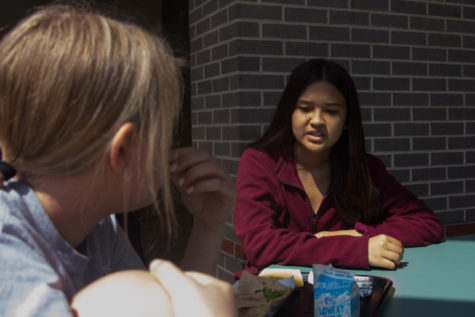
Sophomores Alina Matejkowski and Jordan Collins conversing at lunch. Despite its importance, sexual assault is not the average conversation at the lunch table.
The school would wait until the criminal justice system charged the perpetrator with a crime, Graber said.
Rick Henry, Director of High School Support, says that sexual assault or battery is covered by Policy JDD (JDD is rooted in Kansas Statute 72-8901), a section of which reads: “Students may be suspended or expelled for…conduct which endangers or substantially impinges on or invades the rights of others.”
An investigation starts upon receipt of a report of sexual assault or battery. If the facts support the conclusion that a person has violated a policy, then administration will determine the appropriate penalty to impose on that person, which could include expulsion. In addition, any time there is a report of a crime of this nature, the district will contact law enforcement, Henry said.
Miller advocates the environment of the school and says if assault should happen, most people would be understanding and help out.
“There are a bunch of leaders, not necessarily vocal leaders, but people who teach you how to set an good example of how to behave,” Miller said. “[The seniors and juniors are] always here for everybody.”



